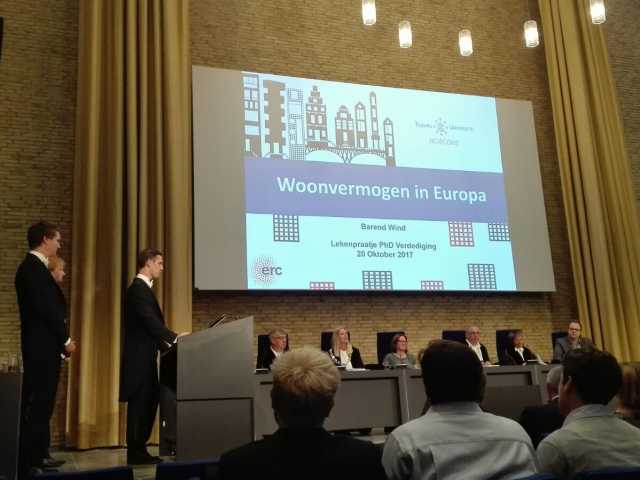Planners, problematize housing wealth inequality!
| Date: | 17 November 2017 |

Especially in countries that have carried-out (neo-)liberal housing policies in the last decades, housing wealth inequality has increased. This is a rather shocking conclusion, since wealth accumulation is one of the main policy objective of homeownership stimulation schemes, implemented all across the continent. Housing wealth is on its way of becoming one of the major cleavages in society, together with e.g. income and education. In my dissertation (defended on October 20th 2017) I have investigated how 19 European countries have stimulated homeownership, and which social groups and age cohorts have reaped the benefits of these policies.
Across the continent, homeownership has risen since World War II. An exception are the German-speaking countries, with a strong tradition of rental housing. Between 1945 and 1985, object subsidies (for construction and land) and fiscal subsidies have allowed more – especially younger and lower-middle class) – households to enter homeownership. After 1985, the mode of homeownership expansion has changed dramatically. Under influence of neoliberal thought, especially Northwest European governments have tried to enlarge owner-occupancy by privatizing social housing, deregulating the rental market, and liberalizing the mortgage market. Prime examples of this trend are the Netherlands, Denmark, Sweden and the UK. The above-mentioned policy measures have caused many more households to move into homeownership. Therefore, it has often been concluded that these policy measures have been highly successful.
French economist Thomas Piketty has shaken up the public debate by stating that we should judge social policies and market regulations by the extent to which they reinforce or mitigate wealth inequality. If we take a more in-depth look at his work, we can conclude that the growth of wealth levels relative to the national income is mainly the result of a growing stock of housing wealth. In my dissertation I therefore evaluate the effect of different housing policy regimes on housing wealth accumulation.
In countries with a liberal regulation of owner-occupancy (such as the Netherlands), housing wealth inequality has shown the most pronounced increase. In these countries, readily available mortgage credit has allowed lower-middle class households to enter homeownership, without amortizing their mortgage. They do not accumulate much housing wealth, especially if they use their capital gains to supplement their limited incomes. The liberalization of housing finance has resulted in inflated and volatile house prices, which has materialized in the hands of higher socio-economic groups. In other words: labor market inequality translates into housing market inequality as households with different incomes have different levels of purchasing power, but this is reinforced by a liberal regulation of owner-occupancy.
The housing market is an engine behind housing wealth inequality as well. Yet, households with a lower socio-economic status make smaller capital gains (in %) than those with a higher socio-economic status. The engine behind this outcome is the restructuring of European cities in the last three decades, in which social- and ethnic groups have come to live increasingly segregated. Households with a high socio-economic status have much economic- and cultural capital and can buy a home in a neighbourhood where their peers cluster and prices rise, whereas the residential choice is limited for households with a low socio-economic status.
What is the take-home message of my dissertation for planners? First, take into account the housing wealth consequences of your interventions. Of course, the national policy framework is one of the major reasons behind the upswing in homeownership levels, but local spatial strategies, aiming at neighbourhood mixing might counter the national tendency of increasing levels of housing wealth inequality. Furthermore, it is up to planners to generate attention for national regulations and policies that stand in their way when striving for socially just and sustainable communities.
Barend Wind (b.j.wind rug.nl) is assistant professor at the department of Spatial Planning and Environment.

